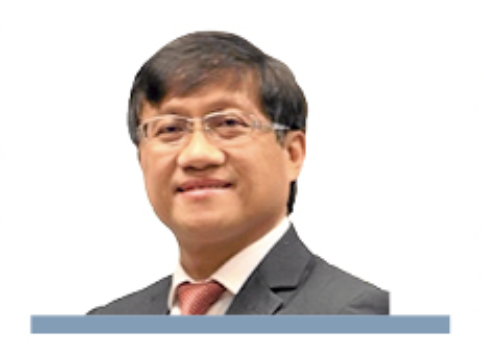Managing invisible disruptions: Key lessons for CEOs

CEOs today are faced with multiple uncertainties. Technological disruption, climate change, fractured geopolitics and other long-term megatrends are fundamentally reshaping how business leaders lead, adapt and grow.
Isla Lipana & Co./PwC Philippines, in collaboration with the Management Association of the Philippines (MAP), has been annually documenting CEOs’ thoughts and insights on doing business in the Philippines through its Philippine CEO Survey. For over a decade, PwC Philippines has been the MAP’s Knowledge Partner for its annual MAP International CEO Conference.
During this year’s survey, we asked nearly 200 CEOs about their outlook on their companies amid many concerns, such as the risks associated with shifting trade policies of the world’s largest economies, the impact of artificial intelligence (AI) and other emerging technologies, climate change, and ongoing conflicts in the Middle East and Ukraine.
Despite the headwinds, CEOs have been steadily optimistic about the future, based on this year’s report and while looking at its prior editions. To keep the confidence going so they may thrive amid unseen pressures, we gathered relevant and possibly timeless lessons from the 2025 results that we presented to MAP members and journalists during the 23rd MAP International CEO Conference last Sept. 9.
Lead with agility and resilience
Fifty-two percent of CEOs believe their organizations won’t be economically viable in 10 years if they stay on their current path. Technological disruption, geopolitical tensions and climate change pose significant threats to some companies that fail to adapt. And long-term viability is currently challenged by CEOs’ concerns, such as inflation (94 percent), macroeconomic volatility (93 percent) and cyber risks (84 percent).
Meanwhile, the US tariff escalation and regional conflicts are particularly changing trade and supply chains. Leaders can strongly consider diversifying markets, strengthening risk management and building resilient supply chains. CEOs must embrace transformation, rethink business models and adapt quickly to remain competitive.
Agility is not just about speed—it’s about structured responsiveness, shorter decision cycles and frequent strategy reviews. The need for reinvention has never been more urgent.
Matthew Duffey, Global Business Model Reinvention (BMR) Leader at PwC US, sums up the importance of BMR. “How CEOs and their leadership teams tackle the reinvention imperative will determine their companies’ future.
Business model reinvention is about fundamentally redefining a company’s value proposition. It’s far more than refining a technology or streamlining a process; it’s about rethinking how an organization creates, delivers and captures value in a rapidly changing world.”
Invest in people and technology
The majority of CEOs, at 82 percent, are prioritizing workforce upskilling, especially in AI, cloud and cybersecurity. Meanwhile, 68 percent of CEOs have integrated AI into their strategic plans, but only 38 percent have fully rolled out generative AI.
Leadership must ensure inclusive, scalable talent development and foster a culture of continuous learning. Indeed, transformation journeys do not solely involve tech-powered solutions—they ought to be human-led. Joe Atkinson, PwC’s global chief AI officer based in the US, puts it succinctly.
“Technology is a powerful force, advancing every day, but technology alone can’t reinvent our business or change the way we work. Meeting that challenge also requires smart, creative people of integrity who dive in and embrace advancing technologies, learning to apply AI in responsible and innovative ways.”
PwC’s investments in AI, for instance, are unlocking new opportunities for value creation for clients. The global investment of nearly $1.5 billion in AI is not only transforming the way we work, but is delivering new opportunities for efficiency, innovation and value.
For example, employees’ use of Copilot enables real-time collaboration and efficiency across the organization, freeing teams to focus on what matters most.
Trust in the country’s macroeconomic fundamentals while focusing on your purpose to drive growth.
Eighty-three percent are confident about their industry’s prospects for the next 12 months, while 87 percent expect revenue growth in the next three years.
When asked about what they consider the key growth drivers of the Philippine economy in the next 12 months, 62 percent identified domestic consumption, while 65 percent pointed to infrastructure development. This outlook rests on solid macroeconomic fundamentals.
The World Bank sees the Philippines’ growth likely to remain robust and be among the fastest in the region, despite global slowdown and increased trade policy uncertainty. Strong domestic demand is underpinned by stable inflation and monetary policy easing; public investment is sustained despite ongoing fiscal consolidation; and recent investment policy reforms could boost private investment.
Foster inclusive and collaborative leadership
Sixty-four percent of CEOs are gathering diverse perspectives internally, and 62 percent are seeking external advice.
Within the organization, empower employees to make them feel a sense of autonomy, influence, confidence and meaning at work. When employees have power and choice, they are happier, more committed to their organization and find purpose and fulfillment. They’re also better at their jobs, more likely to go the extra mile and be more innovative.
Looking outside the organization, integrate customer centricity and experience into the organization’s culture to promote long-term relationships, drive innovation, and improve customer experiences by adapting to their evolving expectations and demands.
Inclusive leadership leads to better, faster decisions and more impactful outcomes. CEOs should encourage internal debate, tap external networks and build advisory ecosystems.
We have witnessed how Philippine businesses, in varying degrees, have not only weathered disruptions but also uncovered new opportunities for innovation, expansion and long-term value creation.
In next year’s survey, we expect to see our business leaders make greater strides by navigating invisible disruptions as they leverage their strengths in adaptability, entrepreneurial spirit and collaborative leadership.





















